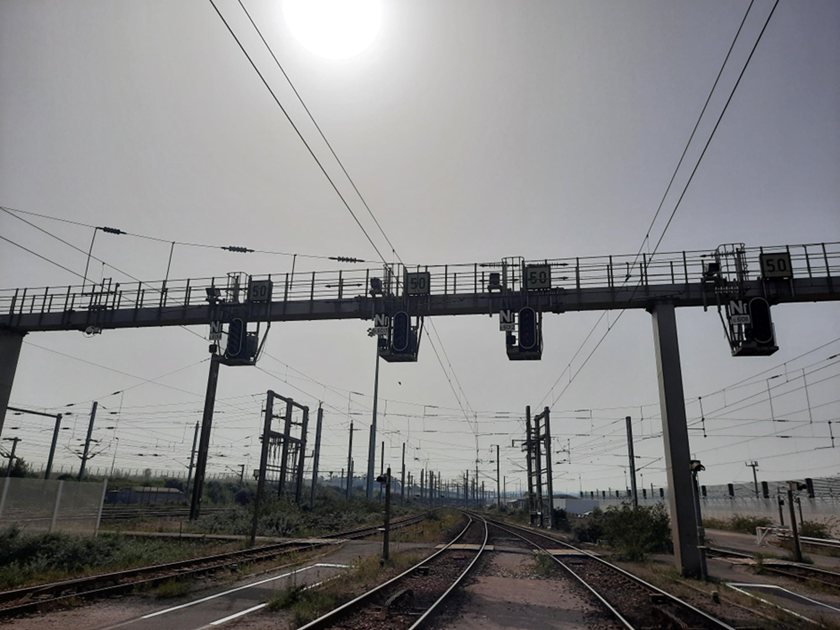The Intergovernmental Commission (IGC) is currently the National Safety Authority (NSA) for the UK half of the Channel Tunnel – the “Fixed Link.” The Channel Tunnel Safety Authority (CTSA) is responsible for advising and assisting the IGC on all matters concerning safety in the construction and operation of the Tunnel.
Both the IGC and CTSA are bi-national entities and include representatives from both French and British transport ministries, regulators and emergency services.
We work closely with both Eurotunnel and international operators to ensure that major refurbishment and enhancement projects and the introduction of new rolling stock and infrastructure are managed effectively, and in accordance with relevant legislation.
In March 2024 we jointly established a new forum with L'Etablissement Public de Sécurité Ferroviaire (EPSF) who are the national safety authority for the French half of the Tunnel.
This Safety Monitoring Group, provides detailed scrutiny of technical and operational matters that may affect the safety of railway operations on the Channel Tunnel concession.
Amongst the work undertaken by CTSA inspectors this year, we have:
- undertaken an assessment of Eurotunnel’s application for the periodic renewal of its safety authorisation, as well as the renewal of an international freight operator’s safety certificate
- inspected the procedures used by the emergency responders, including First Line of Response (FLOR) contractors, when managing incidents in the Channel Tunnel
- examined freight operators’ arrangements for pre-departure checks of services using the Channel Tunnel, as well as international train driver competence
- started early engagement with potential new international passenger operators, ensuring that aspirant operators are aware of the specific requirements associated with operations on the Fixed Link
Case Study 4: International Freight Operations
The Channel Tunnel provides an essential link for the movement of goods between Great Britain and Europe. In 2023-24 we worked with inspectors from EPSF to carry out an inspection of Dollands Moor and Calais Frethun freight yards, focussing on the pre-departure checks undertaken on rail freight services using the Channel Tunnel, as well as the arrangements for the competency of freight train drivers of international freight services.
We examined these arrangements through a combination of interviews with staff, site visits and document reviews. The report concluded that there were appropriate arrangements in place for the management of both pre-departure inspections and the competence of international freight train drivers.

We continue to work with Eurotunnel on multi-year projects, to ensure that risks are identified, assessed and appropriately mitigated. These projects include:
- the mid-life overhaul of Eurotunnel’s passenger shuttle fleet
- Eurotunnel’s revision of its emergency management arrangements
- Eurotunnel’s long-term response to incidents involving a loss of suspension components on freight shuttles- see below for more details
We have also engaged with both Eurotunnel and Eurostar on their preparation for increased passenger numbers and ceremonial events during the Summer 2024 Olympic and Paralympic games.
There were two significant incidents that occurred during 2023 to 2024.
June 2023: A missing suspension spring was discovered on a freight shuttle wagon during routine maintenance. This follows on from a similar incident in August 2022 where a freight shuttle derailed at low speed in the French terminal as a result of the loss of a suspension spring. We have continued to engage with Eurotunnel as it has implemented appropriate contingency measures to permit the continued operation of freight shuttles. Eurotunnel is now examining the interface between the condition of the train and track and whether this has the potential to increase the risk of derailment.
30 November 2023: A London to Amsterdam Eurostar service was involved in an incident where the overhead line failed at the High Speed 1- Eurotunnel infrastructure boundary. The train lost power and it took almost 8 hours to return the train to St Pancras, during which time the train’s 770 passengers had to endure an increasingly deteriorating on-board environment. Although the incident did not occur on the Channel Tunnel concession, the incident response involved Eurotunnel resources and any learning from the industry investigation will be directly relevant to the management of stranded trains incidents in the Fixed Link.
We continued to work closely with colleagues in the French Transport Ministry to conclude the arrangements to facilitate the supervision of Channel Tunnel operators following the UK’s exit from the European Union. The final appendix of the Cooperation Agreement, appendix VI, relating to the authorisation for placing into service of fixed installations) was signed by ourselves, EPSF and the IGC in December 2023.
In the coming year we intend to undertake planned inspections of Eurotunnel’s management of civil engineering assets and arrangements for the management of drivers of engineering trains, as well as continue to examine the processes for the management of emergencies within the Fixed Link.

